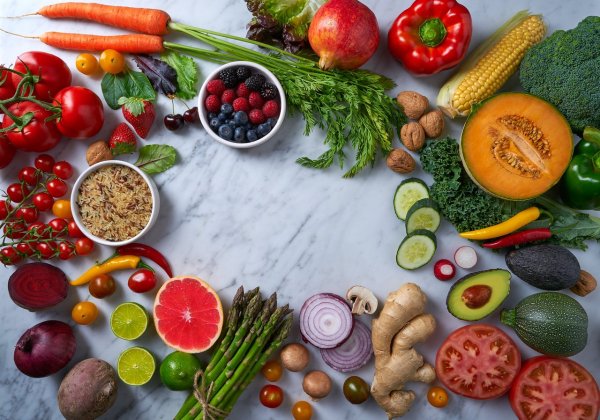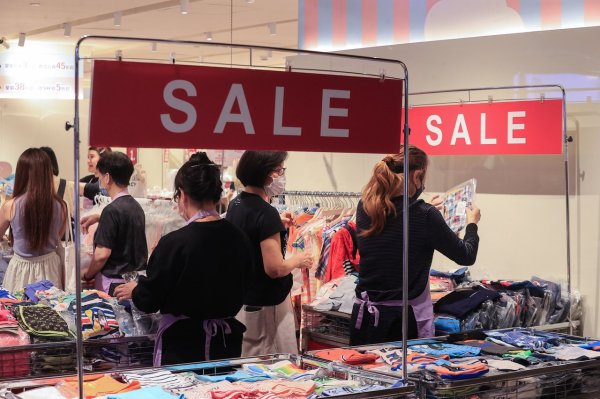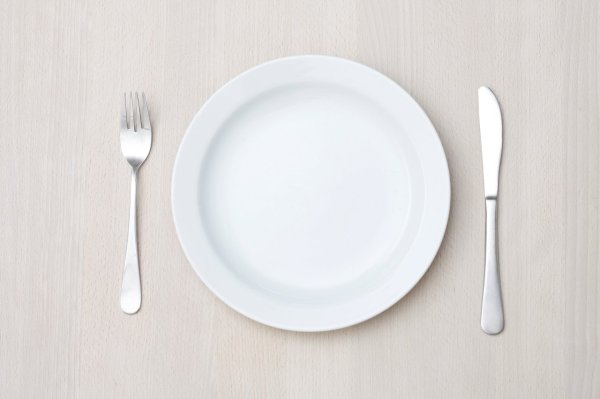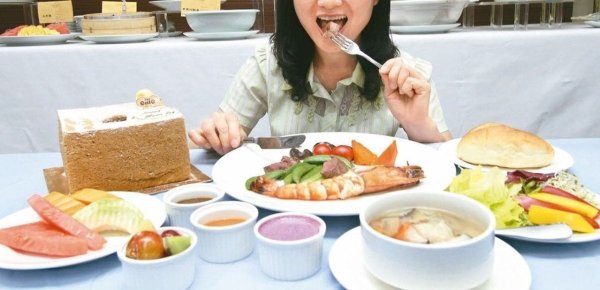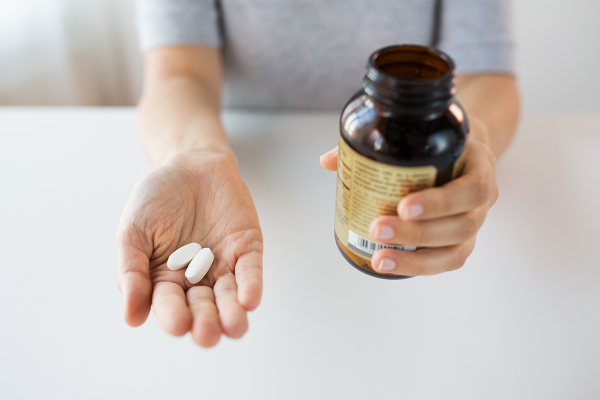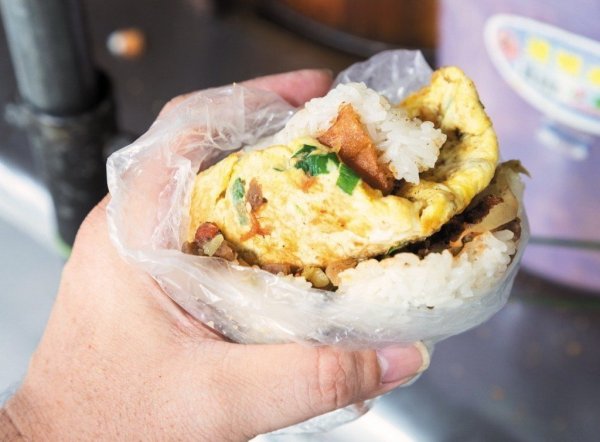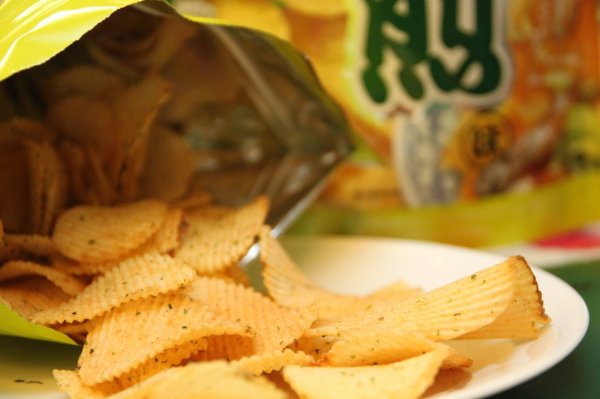Imported foods are subject to restrictions on ethylene oxide! Is Taiwan’s zero-test regulations really reasonable?
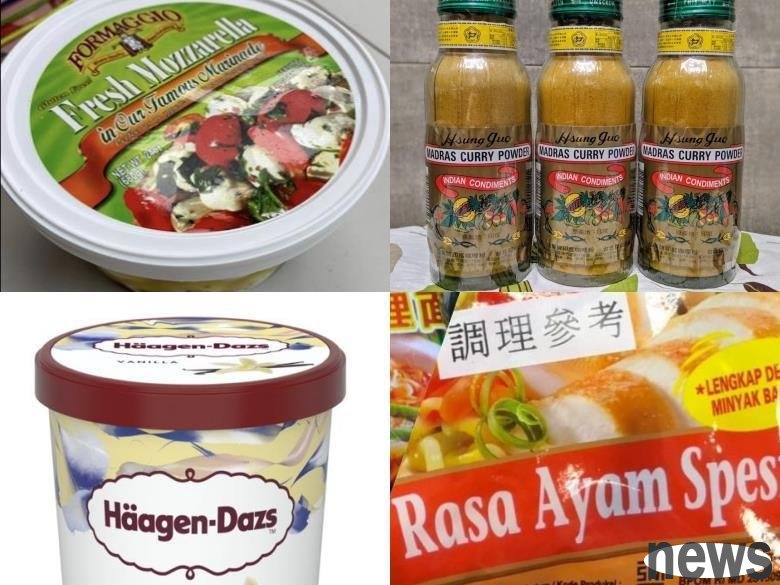 Food you should know
Food you should know Recently, the "Oil Mozorola cheese" sold by Costco was found to be deprived of ethylene oxide (EtO) and taken off the shelves for recycling. In the past, Godiva ice cream, Hagendas ice cream, imported noodles and other foods were banned from import or off the shelves for recycling due to the same reasons. However, Xu Ting-chung, a concurrent associate professor at the Institute of Food Science and Technology of Taiwan University, believes that Taiwan's current behavior has no limit to retain the tolerance and the inspection method needs to be corrected.
The "Oil Mozorola Cheese" sold by Costco Costco on July 8, 2023 was found to contain the agricultural drug Ethylene oxide (EtO) and was asked by the Kaohsiung Municipal Health Bureau to remove the company from recycling. In recent years, imported foods such as Godiva ice cream, Hagendas ice cream, Baicheng Arabian curry noodles, Indomie specialty chicken flavor soup noodles have been removed from the shelves for the same reasons. Why are ethylene oxide retained with bright red lights? What impact does the new inspection method announced by the Food and Drug Administration on July 5, 2023 have on the inspection?
{999 9}In this regard, Xu Ting-chung, the concurrent associate professor of the Institute of Food Science and Technology of Taiwan University, believes that even if the inspection method is corrected, Taiwan still does not reserve a limit on ethylene oxide. The same problem may still occur in imported food in the future.
Domestic regulations stipulate zero detection of ethylene oxide! Costco's "Oil Mozorola Cheese" is fully removed from the shelvesFood and Drug Administration stated that the validity date of the batch of cheese products Costco recently reported to the Food and Drug Administration is August 23, 2023. The detection of ethylene oxide during border inspection and non-compliance with zero detection regulations, so the input of this whole product is prohibited.
However, Costco has entered a batch of the same products in the past and is still within the validity date. Therefore, the Food and Drug Administration immediately asked the Kaohsiung Hygiene Bureau to inspect the whole product after the start of the market inspection mechanism. The inspection results showed that the ethylene oxide content reached 1.277mg/kg (relative to 1.277ppm). The total imported 913.92 kg and still stock 156.4 kg. According to the law, Costco companies are required to handle the removal of the product from the shelves and recycling operations. As of July 11, the total total recycling of 138.602 kg has been recovered.
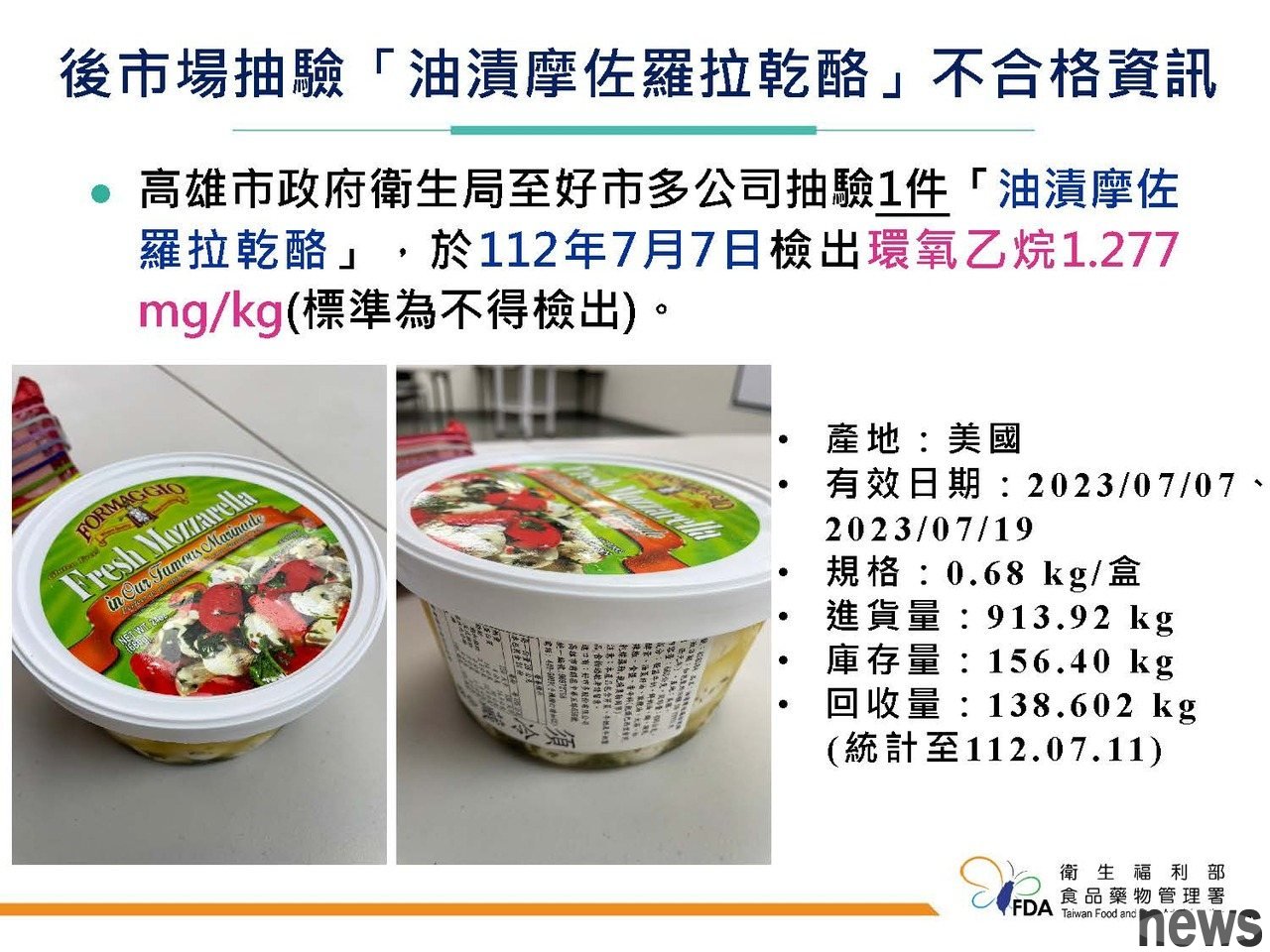
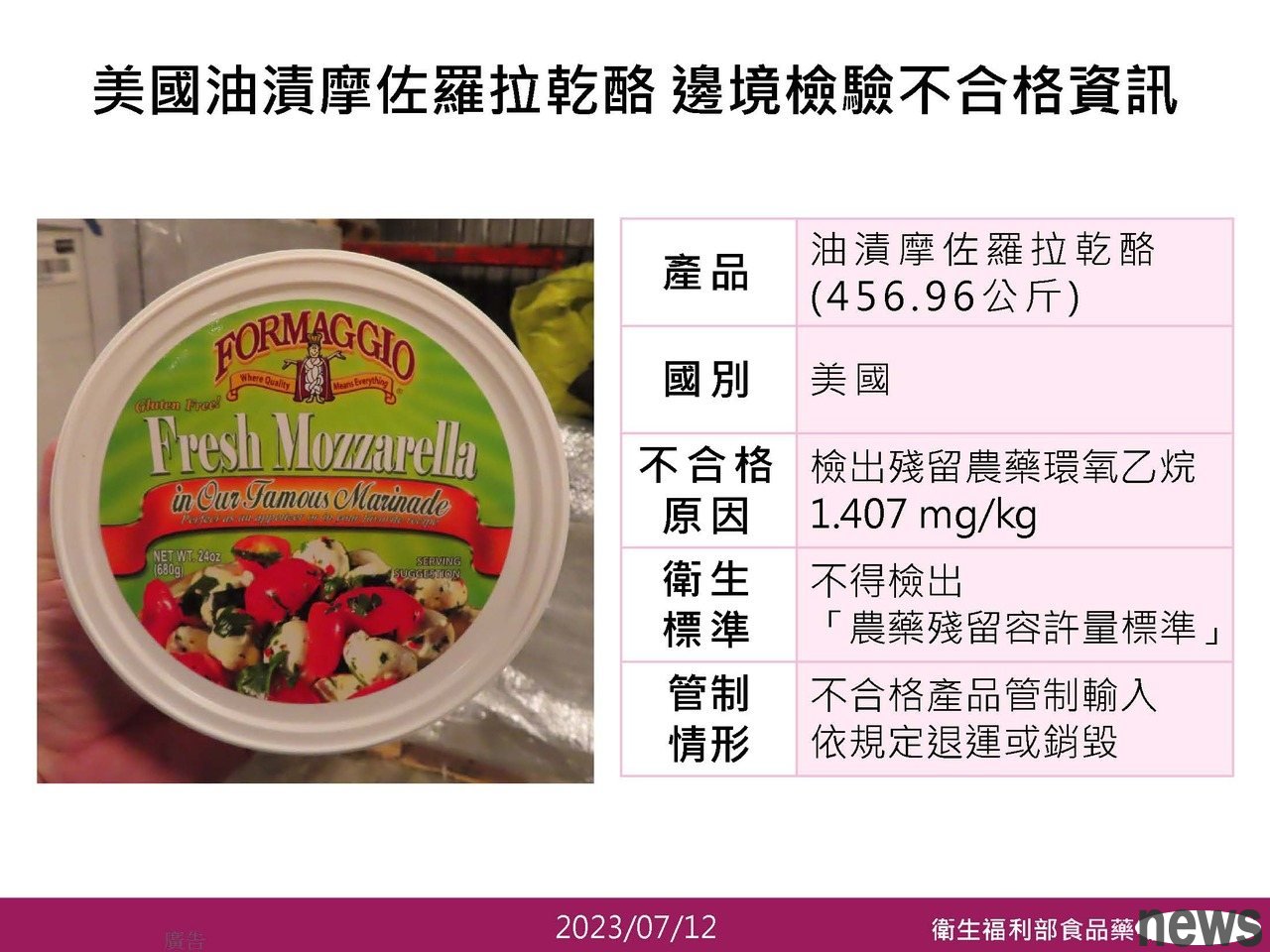
According to the carcinogen classification made by the International Cancer Research Institution (IARC) belonging to the World Health Organization, ethylene oxide is a first-class carcinogen. Although some countries can use foods such as spices, sesame, dry vegetables, etc. as a steamer to prevent mildew, but Taiwan The regulations of the United States shall not be used for agricultural production or food addition. Once the regulations are found, they may be subject to the provisions of Article 15, paragraph 5 of the Food Safety and Hygiene Administration Law, which shall be subject to a penalty of not less than RMB 60,000 and not more than RMB 200 million in Article 44 of the same law. Products shall not be subject to any destruction in accordance with Article 52 of the same law.
However, Xu Ting-chan stated that compared with Europe, the United States, Canada, Japan and other countries, they all reserve reserve allowances (MRLs) for ethylene oxide, Taiwan lacks relevant regulations. On the premise that it cannot be used for food addition, it is a violation of the operator's regulations, and the regulations are incomplete.
There is also ethylene oxide in nature. Is it reasonable to determine the regulations of the operator if the retention amount is found in my country?Taiwan's past inspection method for ethylene oxide was to use the test value of its counterpart "2-chloroethanol" to re-express the ethylene oxide content, and the upper limit of 2-chloroethanol is 0.055mg/kg (relative to 0.055ppm). Costco's two-degree inspection regulations also follow this standard. Xu Ting-chan revealed that this limit is not a statutory minimum retention standard, but is ordered based on the limit of the detection machine. However, this type of reliance material does not only contain ethylene oxide, but also 2-chloroethanol in nature, and pyrolysis, mowing and other behaviors will also produce a small amount of 2-chloroethanol. Therefore, Taiwan only judges that the product has no retention of ethylene oxide by the content of 2-chloroethanol, and the determination base is too rough.
Take the United States and Canada as an example. Both countries set the ethylene oxide retention standard at 7ppm and 2-chloroethanol at 940ppm, which is much higher than the Taiwan inspection standard. Although the strict EU bans ethylene oxide, the total ethylene oxide retention capacity (ethylene oxide + 0.55 & times; 2-chloroethanol) is set to be less than 0.1. ppm is still higher than the Taiwan inspection standard at that time. In this way, foods qualified in Europe and the United States may be subject to violations as soon as they enter Taiwan.
Calling supervisors shall formulate a sacrificial allowance Otherwise, more imported foods may be innocently punished. In response, the Food and Drug Administration responded that on July 5, 2023, the new version of the inspection method on the road was announced, canceling the standard value of 0.055ppm. At present, the quantitative limit of ethylene oxide and its reactant product 2-chloroethanol in food is synchronized with the EU, and the sum of ethylene oxide and 2-chloroethanol is changed to 0.1ppm. If there may be trace amounts of 2-chloroethanol in the environment, resulting in doubts in the analysis results, the source head survey or comprehensive analysis of the supporting data should be combined. However, the Food and Drug Administration stressed that despite the abnormality of standards, ethylene oxide cannot be detected in domestic food.
However, Xu Tingyan explained that the direct contact of human ethylene oxide is of course carcinogenic, but it will gradually be rewarded after entering the food chain, which has limited harm to humans.. He pointed out that although the inspection method has been in accordance with the EU regulations, the EU or other countries have not been designated as the retention standards, and Taiwan imports a large amount of food from the United States every year. In the future, the problem of dismissing Article 15 of the Food Safety Law due to the ethylene oxide content may continue, resulting in more food obstacles when importing. At the same time, it is called on the competent authorities to pay attention to the responsibility of food safety management and educating the people to avoid panic among consumers due to the outbreak of food safety incidents.


